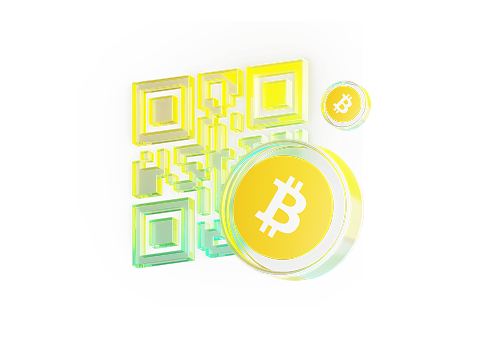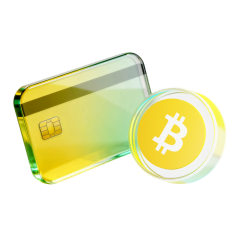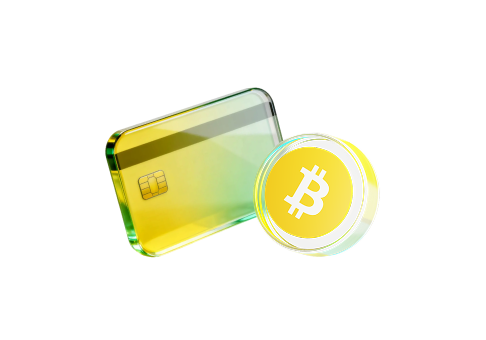What Are Bitcoin ATMs and How Do They Work
Bitcoin ATMs, also known as BTMs, are specialized machines that let you buy or sell cryptocurrencies using cash. These machines work like regular ATMs but instead of dispensing cash from your bank account, they convert your physical money into digital Bitcoin or other cryptocurrencies.
The process is straightforward. You insert cash into the machine, scan a QR code from your digital wallet, and the BTM sends the cryptocurrency to your wallet address. The machine connects to cryptocurrency exchanges in real-time to provide current pricing and verify transactions. For selling Bitcoin, which only works on bidirectional ATMs, you send Bitcoin to the machine's address and receive cash once the transaction confirms.
You can find BTMs in convenience stores, gas stations, shopping malls, and cafes across major cities. The United States hosts the majority of the world's 38,000+ BTMs as of early 2025. These machines have made cryptocurrency accessible to people without bank accounts or those who prefer using cash for their transactions.
Review BTC Price on LBank
BTC() Price
The current price of
Major Bitcoin ATM Operators and Market Leaders
Three companies dominate the BTM landscape in North America. Bitcoin Depot, CoinFlip, and Athena Bitcoin collectively operate more than 16,000 machines, representing over half of all crypto ATMs in the United States.
Bitcoin Depot stands out as the industry leader. Founded in 2016, the company operates over 8,400 locations across the U.S., Canada, and Puerto Rico. It became the first BTM operator to go public via Nasdaq, which helped legitimize the entire BTM industry. The company focuses on creating an easy and convenient buying process for customers.
CoinFlip takes a simple approach to BTM operations. Cofounder Daniel Polotsky describes their premise as "Go insert cash. Get Bitcoin." The company has also been active in government relations, with CEO Ben Weiss engaging with officials and participating in lobbying efforts to shape industry regulations.
Bitcoin ATM Fees and Cost Comparison
BTM fees are significantly higher than online exchanges. This price difference is one of the most important factors users should understand before using these machines.
When you buy Bitcoin at a BTM, you pay between 6% and 20% in transaction fees. Online exchanges charge only 0.1% to 1.5% for the same service. Selling Bitcoin at BTMs costs 5% to 15% in fees, compared to the same 0.1% to 1.5% at online exchanges. BTMs also add network or service fees, typically $3 to $10 per transaction.
A real example shows the true cost. A Bitcoin Depot machine receipt from March 2024 revealed the company selling Bitcoin at 24% above market rate. On a $4,300 cash transaction, the company collected about $850 in markup plus a $3 service fee. This means the customer paid over $850 extra compared to buying the same amount of Bitcoin on an online exchange.
Fee Structure Breakdown
- Buying fees: 6-20% at BTMs vs 0.1-1.5% online
- Selling fees: 5-15% at BTMs vs 0.1-1.5% online
- Additional charges: $3-10 service fees at BTMs
- Real markup example: 24% above market rate at some machines
Timeline of BTM Development
First BTM Launch
First BTM debuts in Vancouver, Canada
Bitcoin Depot Founded
Bitcoin Depot founded with mission to bring Bitcoin to the masses
Fraud Hits $12M
BTM-related fraud losses reach $12 million
Fraud Jumps $114M
Fraud losses jump to $114 million
Depot Goes Public
Bitcoin Depot becomes first BTM operator to go public on Nasdaq
38K BTMs Worldwide
Global BTM count reaches 38,000+ machines
The History and Growth of Bitcoin ATMs
The first Bitcoin ATM appeared in Vancouver, Canada, in 2013. Before this innovation, buying Bitcoin was complicated and required technical knowledge that most people didn't have. The Vancouver machine was initially seen as a novelty, but it marked the beginning of a new era in cryptocurrency accessibility.
The industry has grown from a single machine to nearly 40,000 globally in just over a decade. Market analysts project the global BTM industry, currently valued at $1.4 billion, will reach $452 billion by 2037. This explosive growth reflects increasing cryptocurrency adoption and demand for convenient access points.
The Dark Side: Bitcoin ATMs and Scam Operations
Law enforcement agencies now view BTMs as "perpetual crime scenes" because criminals use them extensively for financial fraud. The machines have become the preferred tool for international scammers targeting American victims, especially elderly people and retirees.
Fraud losses involving crypto ATMs have exploded in recent years. Losses jumped from $12 million in 2020 to $114 million in 2023. The problem accelerated further in 2025, with approximately $240 million lost in just the first six months. The average victim loses over $15,600 to these scams.
Scammers follow a predictable script. They call victims and pretend to be law enforcement officers, tech support specialists, or government agents. They create panic by claiming the victim's bank account was hacked, they owe money to the IRS, or they face arrest. The scammer then directs the frightened victim to a nearby BTM to deposit cash. Once the money converts to Bitcoin, it transfers to anonymous wallets controlled by criminals, often routed through offshore crypto platforms.
The irreversible nature of cryptocurrency makes these crimes particularly devastating. Once the Bitcoin leaves the victim's control, recovery becomes nearly impossible. The stolen funds usually end up in foreign countries that don't cooperate with U.S. investigations.
Legal Battles and Regulatory Response
The widespread use of BTMs for fraud has triggered intense legal battles between law enforcement and BTM operators. State attorneys general have filed lawsuits with shocking allegations about the extent of criminal activity.
The DC attorney general found that more than 90% of deposits in one company's ATMs over five months came from fraud. Iowa's attorney general sued Bitcoin Depot, claiming scams accounted for more than half of all money the company collected in Iowa over three years. This totaled over $7 million in scam transactions in Iowa alone.
BTM companies dispute these claims. They argue that scams represent only a small share of overall transactions. They point to consumer protections like on-screen warnings about scams and real-time screening systems. Companies also emphasize that users agree to terms of service before completing transactions.
These disputes have led to bitter confrontations. Police departments have seized cash from BTMs when they identify scam victims, but companies fight back in court. In one notable case, a Bitcoin Depot employee mocked and chastised police departments after winning court battles to reclaim seized cash. The company later called these messages "unacceptable" and said the employee no longer worked there.

QR code and Bitcoin ATM, image by LBank
State and Federal Regulatory Changes
Since 2023, at least 18 states have passed new laws targeting BTMs. These regulations typically impose daily transaction limits or require companies to offer refunds to scam victims. But the crypto ATM industry has fought back with an army of lobbyists.
BTM companies have deployed over 150 lobbyists in the last three years to influence legislation. Their efforts have produced mixed results across different states.
Regulatory Outcomes by State
Strict regulations:
- California, Maine, and Iowa enacted $1,000 daily transaction caps
- Maine denied Bitcoin Depot's license application due to consumer losses
- Some states require mandatory refund provisions for scam victims
Industry-friendly outcomes:
- Minnesota raised proposed $1,000 cap to $2,000 for new users after lobbying
- Missouri passed regulations nearly identical to CoinFlip's model legislation
- Several states avoided transaction limits or refund requirements
Federal regulation remains limited. The Trump administration maintained relaxed oversight of the crypto industry, which has allowed state-level battles to define the regulatory landscape.
Benefits and Drawbacks of Using Bitcoin ATMs
Bitcoin ATMs offer genuine benefits alongside serious risks. Understanding both sides helps users make informed decisions about whether to use these machines.
The main advantages include convenience and accessibility. BTMs provide a simple way to buy Bitcoin without creating exchange accounts or linking bank information. They serve people without traditional banking access, supporting cryptocurrency's goal of financial inclusion. Transactions complete in minutes, much faster than the days required for some online exchange verifications. Some users also value the privacy aspect, as smaller transactions may not require extensive personal information disclosure.
But the disadvantages are substantial. The extremely high fees mean users lose significant value compared to online alternatives. BTMs have become magnets for scammers, putting users at risk of becoming fraud victims. Cryptocurrency lacks FDIC insurance or federal protection, leaving users vulnerable to losses. The limited cryptocurrency options at most machines, often just Bitcoin, restrict trading flexibility.
The Future of Bitcoin ATMs
The Bitcoin ATM industry stands at a crossroads. Market projections suggest massive growth potential, with valuations expected to reach $452 billion by 2037. But this growth depends on addressing the scam crisis that threatens the industry's reputation and survival.
Operators must balance accessibility with security. Some companies are implementing better fraud detection systems and customer education programs. But critics argue these measures remain insufficient given the scale of losses. The industry's response to regulatory pressure and fraud concerns will determine whether BTMs become a mainstream financial tool or remain a niche service plagued by criminal activity.
State regulations will likely continue tightening unless the industry demonstrates meaningful progress in preventing scams. Federal intervention could also reshape the landscape if fraud losses continue escalating. BTM operators who prioritize customer protection over profits may emerge as long-term winners in this evolving market.
Users considering BTMs should weigh the convenience against the costs and risks. For small, occasional purchases where convenience matters most, BTMs might make sense despite high fees. But for regular cryptocurrency investing or large amounts, online exchanges offer far better value. Most importantly, users must stay vigilant against scams and never use BTMs under pressure from anyone claiming to be authorities or tech support.

